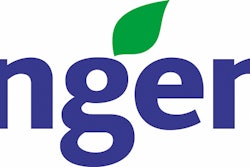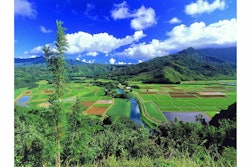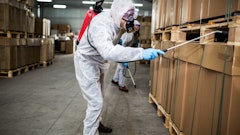DuPont, Syngenta and Agrigenetics Inc, a company affiliated with the Dow AgroSciences unit of Dow Chemical Co., filed suit last Friday in U.S. district court in Honolulu, claiming the law enacted on the island of Kauai in November to limit the planting of biotech crops and the use of pesticides is unconstitutional and seeks an injunction permanently barring enforcement of provisions of the law.
"The ordinance is invalid," Paul Minehart, a spokesman for Syngenta, said in a an interview. "It arbitrarily targets our industry with burdensome and baseless restrictions on farming operations by attempting to regulate activities over which counties in Hawaii have no jurisdiction. These activities are already regulated by governmental agencies under state and federal laws."
The Kauai law requires large agricultural companies to disclose pesticide use and GMO crop plantings while establishing buffer zones around schools, homes and hospitals. Kauai County Councilman Gary Hooser, who co-introduced the bill in June, said the county was asking for basic disclosure and buffer zones and the big agrochemical companies were simply trying to bully islanders. The measure has broad support on the island and on the mainland United States from organizations and individuals who say heavy pesticide use by the agrochemical companies is poisoning people and the environment.
"They chose to use their money and legal power to bully us in the courts," Hooser said. "These companies do not want our county to set a precedent that other communities are going to follow."
A similar measure has been introduced on the island of Maui. And in December, Hawaii Island Mayor Billy Kenoi signed into law a measure that prohibits biotech companies from growing any new genetically modified crops on that island. The Hawaiian islands are a popular testing ground for biotech crops for many companies due to a favorable year-round climate.
The companies grow a mix of biotech seed crops, including corn, soybeans, canola and rice. The temperate climate of Kauai gives the companies "the invaluable opportunity to triple or quadruple the pace of development of GM crops," and is "crucial" to the companies' success, the lawsuit states.
If the companies are forced to disclose the location of their biotech crop fields, they face increased risk of "commercial espionage, vandalism, and theft," they said in the lawsuit. And they say that adhering to buffer zones will hurt them economically because they will lose land for seed production.
The companies assert that biotech crops are essential to boost global food production and improve environmental sustainability. And they say the crops and the pesticides used on them are safe and are already well regulated by state and federal agencies. To read more, click HERE.


















